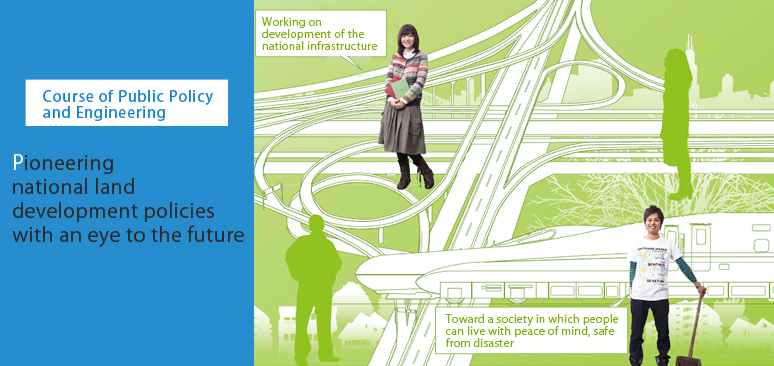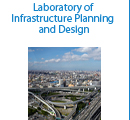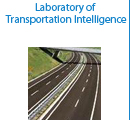Today, active efforts are underway around the world to build infrastructure to improve society's quality of life. At the same time, it is essential that this infrastructure also protect people from natural disasters and to achieve coexistence between human activities and the environment. While infrastructure development helps create economic vitality, around the world there is a demand for the knowledge to advance long-term maintenance and repairs to infrastructure while also maintaining economic performance. As we aim to realize a society capable of sustainable development in the 21st century, there is a need for diverse solutions spanning across national boundaries, including infrastructure systems, public design for various structures, disaster-prevention technologies, environmental protection and revitalization, and the recycling of resources.
This course trains students to become professionals in planning and producing infrastructure, as well as drafting and implementing comprehensive, wide-ranging infrastructure policies backed by advanced technology. In the early years of the course students learn the fundamentals of the policies, plans, urban design, and planning systems needed for infrastructure development, along with the fundamentals of civil engineering. Next, they study topics such as distribution of space and network planning based on both the natural and social environments. In these ways, the Course trains human resources with outstanding technology management skills, capable of drafting, assessing, and implementing policies for the planning and construction of infrastructure facilities to help solve the problems of the future.
It is hoped that students who have completed the course will advance to graduate school to enhance their technology management abilities and further develop their international educational grounding.







